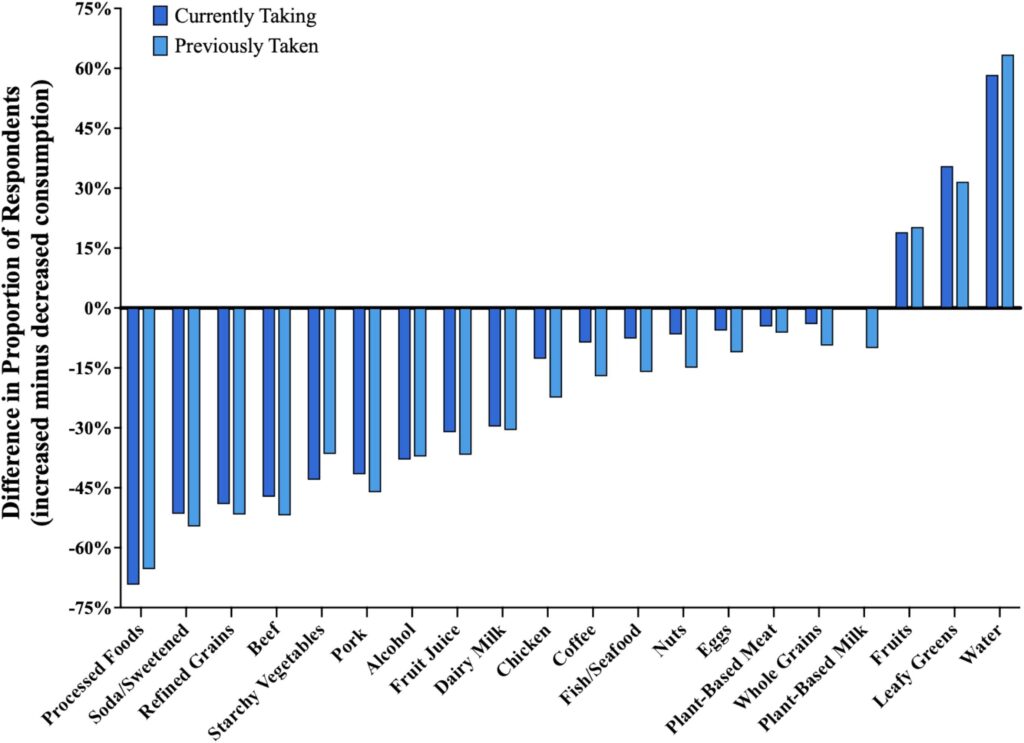
For people with type 1 diabetes, switching from animal products to plant-based foods is an effective strategy for weight loss.
While vegan alternatives to animal products are often labelled as unhealthy due to their classification as ultra-processed, many plant-based foods can be a lever for a range of positive health outcomes.
For instance, in March 2024, a Physicians Committee for Responsible Medicine (PCRM) study found that vegan diets significantly decreased insulin doses and increased insulin sensitivity, and improved cholesterol levels and kidney function in type 1 diabetics.
Now, a secondary analysis of that research has revealed that swapping meat and dairy – even those deemed ‘unhealthy’ – can have positive outcomes for weight loss in this group.
“Whether you have an orange and oatmeal for breakfast or orange juice and toasted white bread, either option is a better choice for weight loss than eggs and cottage cheese,” explained Hana Kahleova, director of clinical research at PCRM and lead author of the study.
Type 1 diabetes is an autoimmune condition where the body attacks and destroys insulin-producing cells, leading to a complete lack of insulin. It is much rarer than type 2 diabetes, representing around 5-10% of the total cases of diabetes, and has no known cause or cure so far.
Vegan diets help type 1 diabetics lose weight significantly

The original 12-week randomised clinical trial assessed the diets of 58 people with type 1 diabetes, who were randomly assigned to either a low-fat vegan group with no calorie or carb limits, or a portion-controlled group that reduced daily calorie intake for overweight participants and kept carb consumption stable over time.
In the secondary analysis – published in the Frontiers in Nutrition journal – PCRM researchers analysed the dietary records to assess the relationship of a plant-based diet index (PDI), healthful PDI (hPDI), and unhealthful PDI (uPDI) with weight loss.
PDI measures adherence to a vegan diet in general. The hPDI group comprises the consumption of ‘healthy’ plant-based foods like fruits and vegetables, whole grains, nuts, legumes, oils, coffee and tea. On the contrary, uPDI includes more foods like fruit juice, sugar-sweetened beverages, refined grains, potatoes, and sweets. A higher score indicates greater consumption of the plant-based foods in each category.
“Our research shows that replacing animal products with plant-based foods – even so-called ‘unhealthy’ ones, as defined by the plant-based diet index – benefits people with type 1 diabetes who are looking to lose weight,” says Kahleova.
Participants following the vegan diet ate a much higher amount of legumes, whole grains and fruits, while cutting back on vegetable oils and nuts. On the portion-controlled diets, consumption of unhealthful foods didn’t change significantly on either diet, except for a lower intake of refined grains.
The researchers found that people who followed a plant-based diet lost 5.2kg (or 11 lbs) on average as a result of changes in the PDI and hPDI scores. In fact, each 1kg loss of weight was associated with a 6.1-point increase in hPDI. On the other hand, there was no weight change for participants on the portion-controlled diet.
Opportunities for plant-based companies amid weight-loss discourse

The results chime with a separate PCRM study from March, in which participants following a vegan diet shed an average of 5.9kg compared to the control group, outlining how replacing meat and dairy with plant-based foods was associated with “clinically significant weight loss”.
In that study, each 50g reduction of processed animal-derived foods per day resulted in a loss of 1kg, as did a 63g decrease in unprocessed animal proteins and a 120g reduction in animal-based UPFs.
This comes on the back of the rise of obesity and Ozempic, which are making Americans rethink the way they eat. GLP-1 drug users are cutting back on processed foods, refined grains, beef, and dairy, and eating more greens and fruits.
In fact, plant-based meat, whole foods and are amongst the foods witnessing the lowest consumption declines. Foods like beef suffer from what’s known as the ‘Ozempic tongue’, a mechanism where people’s taste receptors react differently to foods than they did before GLP-1 use.
But the demand for meat is still there – even if the taste isn’t. And that represents a major opportunity for vegan food producers, whose products are less affected by the aversion to processed foods than the animal industry.
Meanwhile, this latest study is further proof of the weight-loss benefits of a plant-based diet, and the first of its kind for people with type 1 diabetes. Companies can fine-tune their offerings to meet the demand of this consumer segment too.
The post Replacing Meat with Plant-Based Food Leads to Weight Loss in People with Type 1 Diabetes appeared first on Green Queen.
This post was originally published on Green Queen.